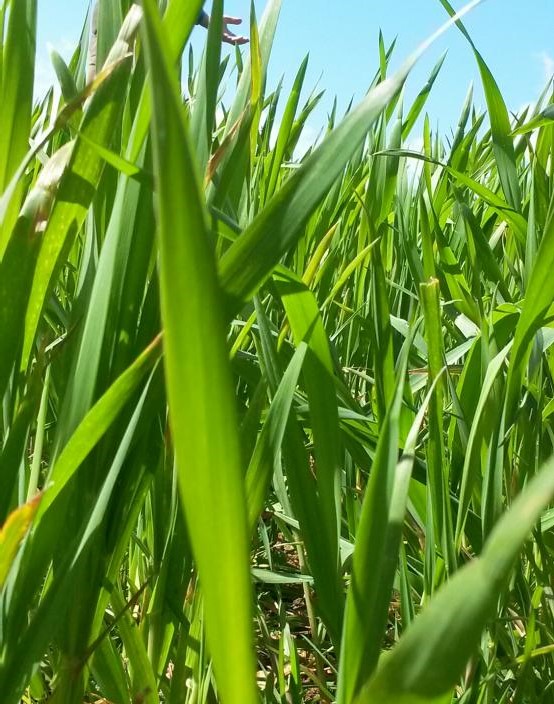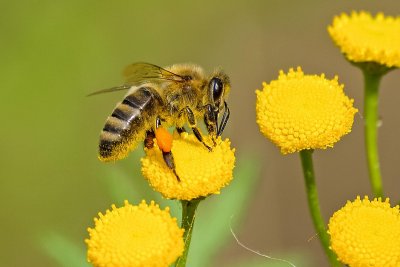News • Sustainable Farming Campaign
The Soil Association report that talks nitrogen
The Soil Association, with The Woodland Trust and Plantlife, recently published a new report on nitrogen in UK agriculture called Fixing Nitrogen the challenge for climate, nature and health. It touches on some of the issues associated with the over application of nitrogen on farmland, emissions from poultry and livestock, and offers potential solutions from a policy and practical perspective.

Nitrogen is important for farm productivity, but too much can cause disruption to ecosystem functions and contribute to human-caused climate change through nitrous oxide (N2O) emissions. Since the Green Revolution of the 1970s, UK farmers have expanded their use of synthetic nitrogen inputs. Ultimately this has been successful at increasing productivity, but it also impacts on the natural functions which farmers rely upon to grow produce. It has also led to higher input costs which draws on the farm business bottom line.
According to the report, nitrogen pollution poses several issues which includes:
- Greenhouse gas emissions of carbon dioxide (CO2) from the manufacturing of fertilisers and the emissions of nitrous oxide (N2O) from the application of fertilisers. It is worth noting that N2O is a ‘long-lived’ greenhouse gas and is 300 times more potent in comparison to CO2.
- Higher nitrogen inputs have led to less biodiversity across farmed landscapes. This includes outcompeting wildflowers and causing algal blooms in watercourses. Emissions from intensive poultry units lead to the deposition of N2O on important habitats (e.g. ancient forests or bogs) which damages that ecosystem.
- Public health implications mainly occur when ammonia (NH3) nitrogen emissions mix with other particles in the atmosphere. This causes small particles which can reach into the lungs and cause respiratory illness. Furthermore, millions of pounds are spent on removing nitrogen from drinking water supplies each year.
For a farmer, the fourth issue is the cost of nitrogen fertiliser to the business. It effectively takes money out of the farmers pocket and places it into big agri-business. That alone is a good reason to find ways to better utilise the free nitrogen which is present in soil and the atmosphere.
The Soil Association report explains that over half of all man-made reactive nitrogen comes from fertilisers, which is more than industry, traffic, imported food and crop fixation put together. A 2017 report by Plantlife suggests that 63% of the UK’s most sensitive wildlife habitats are affected by high nitrogen deposition. This highlights the scale at which nitrogen fertiliser is applied to land. It also gives a clear reasoning as to why farming needs to find ways to reduce nitrogen fertiliser use where possible.
There are many ways in which farmers can reduce synthetic nitrogen inputs through building soil fertility with organic forms of nitrogen. These focus on enhancing the nitrogen cycle through atmospheric fixation (the use of legumes), using organic inputs (manure/compost applications), and protecting soils (better soil management strategies).
In their report, the Soil Association put forward examples of how this could be done:
- At a national level, UK policy-makers need to better acknowledge and understand the interconnectedness of reducing nitrogen emissions for climate, biodiversity, air quality, and businesses sustainability.
- Empower farmers to make the right decisions to innovate and transitioning into farming systems that do not rely on fertiliser. This could be achieved through: incentives which support infrastructure and best practice; advice which helps farmers establish and maintain diverse whole farm systems; and more effective regulation that is easier to understand.
- A move towards agroecology farming systems which aim to work with natural processes and bolster farmland biodiversity. This would be a systemic approach that can provide multi-benefits to the farmer, consumer and the environment. This needs to be thought of from a circular approach; that is, seeing nutrients as a resource that cannot be wasted.
Soil is a hot topic and soil science has progressed at a quick pace over recent years. We know that high inputs of synthetic nitrogen contribute towards breaking the bond between soil biology and plant roots. This degradation of soil leads to disruption to ecosystem functions such as nutrient cycling, soil water infiltration and holding capacity, soil carbon storage and sequestration, and plant health.
Many farmers have been moving away from the conventional systems and towards agroforestry, holistic grazing, cover cropping and others. Not very coincidentally, those farmers have also been seeing benefits in reducing variable costs while also increasing value and maintaining (or even improving) yields. Reducing nitrogen inputs and building soil fertility through natural processes have cost and productivity benefits. It is a business as well as environmental decision.
See more about the report here.
Published Thursday 3 September 2020
Sustainable Farming Campaign: Sustain encourages integration of sustainable food and farming into local, regional and national government policies.





